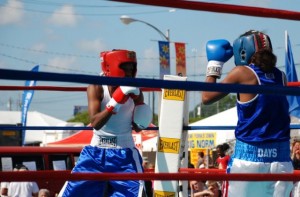Brand Wars – Who Benefits From Them?

The war between Hindustan Unilever (HUL) and Reckitt Benckiser is getting bitter. The two companies have had their skirmishes in the past but the last provocation started barely three weeks ago when Reckitt Benckiser ran a TVC that showed that Dettol kitchen cleaning gel was superior (in killing germs) to HUL’s Vim liquid dishwash.
HUL reacted with its own Vim ad but has exacerbated the fight by launching a print ad that claims that its Lifebuoy liquid soap gives better germ protection than Reckitt Benckiser’s Dettol antiseptic liquid. Earlier, HUL had run a similar campaign on TV.
Are such ads just gimmicks or do they help sales? Would they benefit your brand or are they likely to benefit the competitive brand instead?
In the Lifebuoy/Dettol battle, I would think that HUL may just have misfired for the following reasons:
1. The comparison between Lifebuoy liquid soap and Dettol antiseptic liquid is not a like-to-like comparison. Any rational consumer would argue that a proper comparison would have been between the Lifebuoy and Dettol liquid soaps.
2. Marketing is all about winning the perception game, not what’s reality. While both Dettol and Lifebuoy are established, even iconic, brands, there is no doubt (in my mind, at least) that Dettol provides better antiseptic protection than anything in the market. To that extent, I am unlikely to believe the Lifebuoy claim. If my hypothesis is correct, then the Lifebuoy ads may actually end up benefitting Dettol more than Lifebuoy.
Brand wars are not new – who can forget the digs that Pepsi took at Coke in the 1980s onwards in a series of commercials. Coke rarely retaliated and, overtime, managed to regain its primacy over Pepsi. To Pepsi’s credit, the poke was not tactical – it was built in its positioning of ‘The Choice of a New Generation’. And we all know about the classic Avis attack on Hertz – ‘We are no.2. We try harder.’ I liked that Doyle Dane Bernbach campaign because it was based on an undeniable truth (Avis WAS no.2) and spoke about Avis’ advantages in a very disarming manner. There was no bitterness in the ads. In fact, it was smart positioning that benefitted the brand over a period of time.
Unfortunately, the HUL/Reckitt Benckiser war is pretty bitter with both going to courts to put the other guy down. It is also tactical in nature and that is, generally, the problem with direct comparison ads/campaigns. I don’t know how the general consumer is reacting to all this mudslinging. Do you?
Visual courtesy : http://www.flickr.com/photos/joeshlabotnik/
